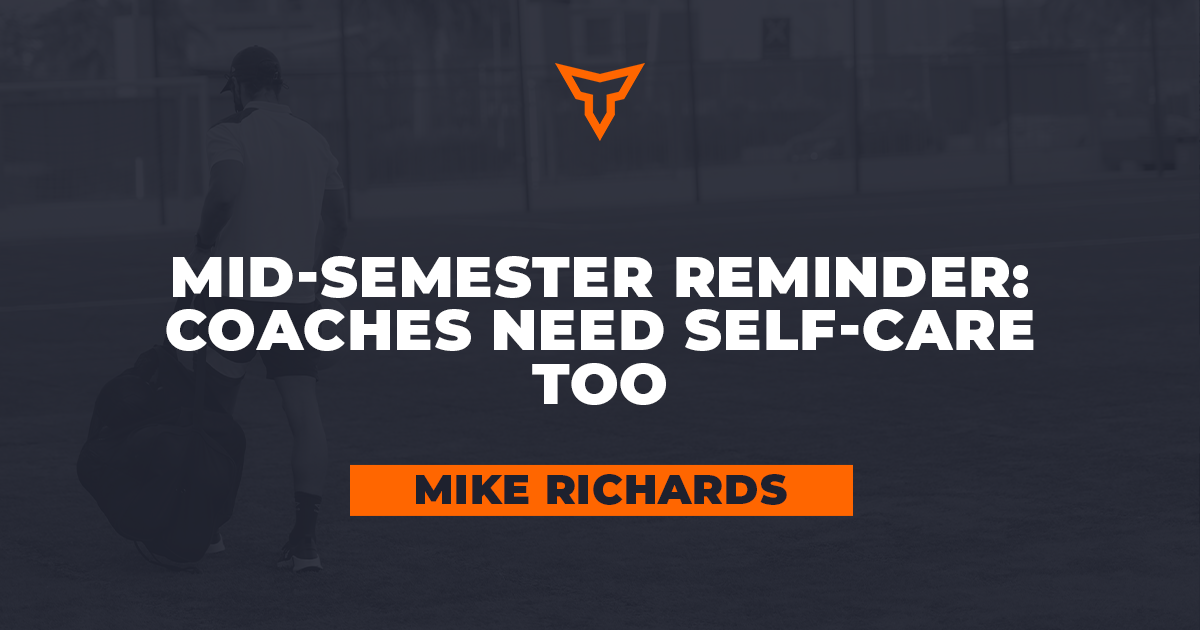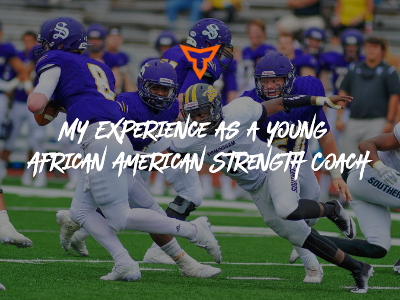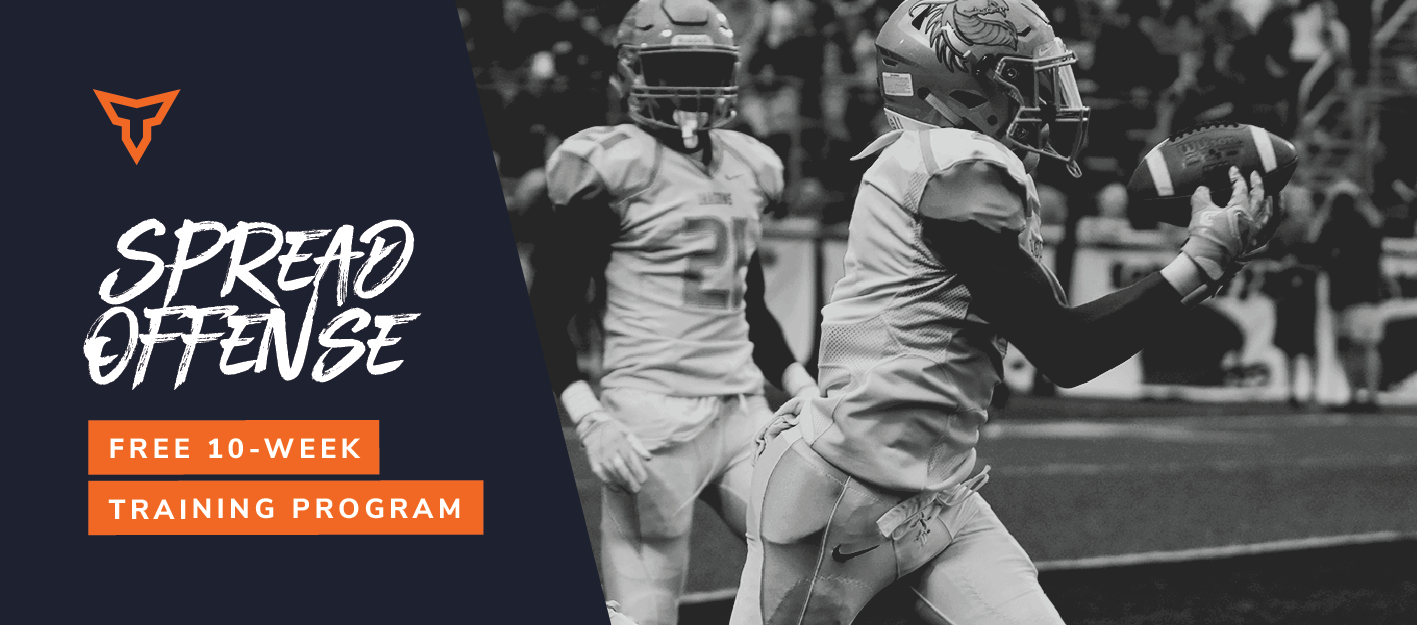Become a Super Strength Coach Using... Sports Coaches
Coach-to-athlete ratio is arguably the largest obstacle most high school & small college strength coaches face. Facilities, budget, & equipment are all important, but it is tremendously hard to be an effective coach when you're alone with 500+ kids.
Unfortunately, this is the situation most coaches find themselves in. With hundreds of athletes requiring their attention, coaches either have to sacrifice quality for quantity, or choose which athletes get the coaching they deserve. A coach only has so much time to give and the more that pie gets divided up the smaller the slice each athlete receives.
This is where utilizing sport coaches as “assistant strength coaches” can transform your program. When trained properly, your sport coaches can be an incredible resource such as having multiple coaches looking for flaws in technique. Now you have a staff echoing your coaching cues. Now you can have training sessions coached properly, even when you leave the room. Not to mention the logistical support that comes with having “assistant strength coaches.” Lastly, if your sport coaches are making the weight room a priority, it’s more likely your athletes will. Everybody wins.
However, this is harder than it sounds. Sport coaches often struggle to meet our expectations in the weight room. Most strength coaches I know love to vent about their sport coaches standing in the corner texting, giving poor advice or being absent all together. This can be frustrating as a strength coach, but we cannot allow these excuses to prevent us from building the program our athletes need.
“You’re either coaching it, or allowing it to happen.”
Here are some strategies I have found to help build up our sport coaches’ ability to help in the weight room:
Develop Administrative Support
There has to be a standard expectation set by administration for coaches in the weight room. Conflict is inevitable, and without support from "above" conflict is usually going to end up hurting the program.
Meet with your administration and build the expectations that your department has for sport coaches in the weight room. Consider including:
- Creating standard requirements for how many lifting sessions teams must perform both in-season & offseason
- Holding mandatory strength and conditioning training clinics for coaches helping in the weight room
- Having admin assign certain coaches to the weight room as a second sport
- Having admin require all coaches not in-season to help with strength and conditioning
- Using in-service time to teach coaches proper technique and red flags in the weight room
- Setting aside funds for sport coaches to go to strength clinics and other continuing education opportunities
At the end of the day no matter what it looks like, having an administration that prioritizes strength and conditioning is the foundation that allows a solid program to develop.
Equip Your Coaches
Most coaches want to coach. There are certainly exceptions, but 9/10 times when I have a coach not doing their job in the weight room it's due to a lack of feeling equipped. When a coach does not feel comfortable with their ability to coach in the weight room the safest thing for them to do is keep quiet.
Imagine getting asked as a strength coach to coach a sport you have no experience with. For me, that would be baseball. If you asked me to go to batting practice and coach up a swing I would be useless. I would probably stay silent so I didn’t mess anything up. I would probably let other coaches give all the advice. I might even get bored after a few days of this and pull out my phone. See how that works?
Sport coaches are the same way. That’s why it is crucial that you equip them with knowledge and coaching cues to be effective in the weight room. After all, they want their athletes to be faster, strong, and more explosive! So if you properly equip them, of course they are going to jump in and coach their tails off.
We achieve this in a number of ways. Just like athletes, different coaches respond to different methodologies. Here are a few methods of helping coaches coach:
- Weight Room Coaching Clinics
Every time we transition into a new training cycle, coaches assisting in the weight room are required to participate in a “weight room coaches clinic” where we go over technique, cues, red flags, and weight room protocol. Coaches are also given a coaches packet with reference information so they can always be prepared.
- Coaches Cheat Sheets & Red Flag Guide
We keep laminated reference guides in our weight room with important information such as exercise regressions & alternatives, red flags, warm ups, and coaching cues.
- Progression Outlines
When coaches are asked to lead speed and COD sessions, they are given a laminated progression sheet that has all of our outside exercises progressions. This keeps our training plans consistent but also allows coaches to progress athletes to more advanced drills when they are ready.
- Outside Clinics and Conferences
Sometimes it takes an outside voice to get you and another coach on the same page. Invite and pay for assistants to travel with you to clinics that pertain to the role they serve helping with your program. Not only will they come away more equipped to coach, you will build your relationship in process.
- Video Tutorials and Guides
This is a step we are in the process of taking this semester that will be a valuable resource for not only our coaches, but our parents and athletes as well. We are going to build a video library of coaching points for our mobility exercises and core weight room lifts. This way coaches and athletes can learn coaching points without having to have 1-on-1 time with the strength staff.
Grow as a Leader
None of this matters much if you don’t develop strong leadership skills yourself! Devote time and resources to growing your own abilities to lead others. The effectiveness of the coaches helping you is ultimately a reflection of your own ability to lead them. Jocko Willink, Tim Kight, and Brett Bartholomew are some of my favorite speakers to listen to on the subject.
It is not an easy task to lead “non-strength coaches” in the weight room. Some of them do not necessarily want to be there, and others do not see it as important. You are also not their ”boss”, so you do not have the power to direct like a head football or basketball coach would.
This does not mean you cannot create an incredible coaching team among your sport coaches. Lead them well and they become an invaluable resource in building a solid program. Pour in the time, energy, and resources to build up your sport coaches and the results will speak for themselves.
Subscribe to our blog
Subscribe to receive the latest blog posts to your inbox every week.
Related posts

Mid-Semester Reminder: Coaches Need Self-Care Too

My Experience as a Young African American Strength Coach


